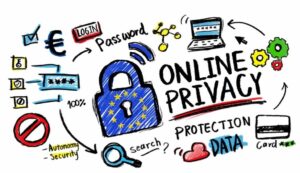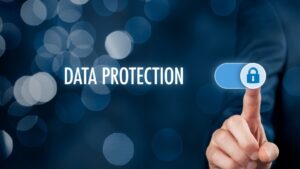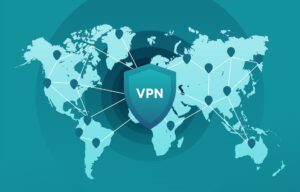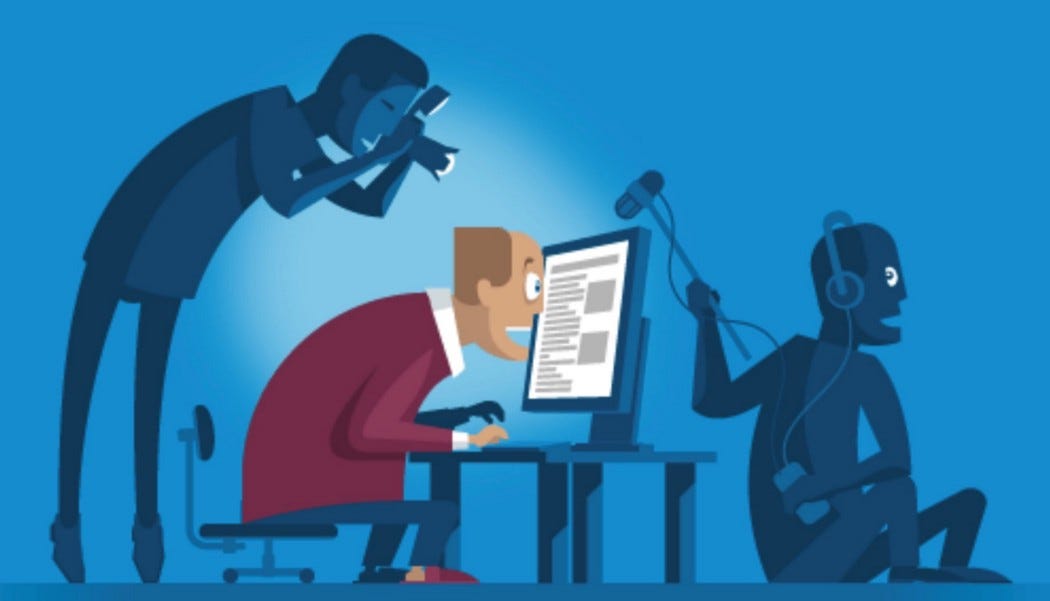Especially for you experienced online adventurers, it is absolutely vital.
Given 60% of senior citizens running across possible online problems, it is abundantly evident that maintaining personal information security is not a joke.
Technology is a wild beast; every social media comment, email exchange, or online purchase can set off some risk.
Here’s how you keep safe—with a little humour thrown in.
- First of all, know your digital footprint—that is, what comprises it. Your online self includes every click, every like, every meme you post. Spend some time looking over what you have thrown onto the online buffet.
- Passwords are like the club bouncer: they pump up your pass-through. You want them tough and strong. Like a decoy in a spy movie, every account requires a unique password. Don’t be that person; IBM claims that a shockingly 95% of breaches result from human error. Mix in some uppercase, lowercase, numbers, and symbols; never use anything obvious like the name of your dog.
- Think of Two- Factor Authentication 2FA as adding still another lock to your door. Those bothersome hackers will have a run for their money from a code texted to your phone or app for validation. According to Google, 2FA creates accounts twice as safe. Sure, kindly!
- Think of updates as armour for your tools. Keep them current. They fix those little gaps that cybercriminals enjoy using. Though you may groan about it, allowing your devices to update themselves is like wearing iron jeans—no villain is breaking in!
- Get friendly with the privacy settings you have on your social media. Change them so just your close friends may view your activities. Going private is like having your own digital backyard barbecue—just invite the people you want around!
- Watch Out for Phishing Attempts: Sneaky emails often start a lot of online trouble. Look closely for messages that seem strange. Delete, delete, delete if it seems as though it is trying to hurry you into action! Always verify the sender’s email address. References? Click only if you are positive they are not bait.
- Choose browsers such as DuckDuckGo and Brave that respect your privacy using Trusted Browsers and Tools. These are your consistent steeds on your digital saddle. What a relief they provide in keeping the obnoxious commercials at distance and shielding you!
- Keep Learning: Cybersecurity moves on a hot tin roof faster than a cat. To keep up, explore seminars, web courses, or follow some great blogs. Let’s increase the 33% of seniors who feel they know about online risks!
- Use Safety Tools: LastPass or Bitwarden are password managers just waiting to save the day. They protect your credentials, much as a knight in shining armour would. And remember antivirus programs like Norton or McAfee to fight the nasty malware.
- Be Smart with Apps: View what an app seeks to access before downloading one. Maybe let it go if it requests more than it requires—such as your yoga practice or your quiz results from the last family get-together.
Including these techniques into your online life not only increases your security but also lets you boldly negotiate this digital wilderness.
Your privacy is a treasure worth protecting; with a little cunning and some laughter, you can negotiate the internet without thinking about it.
Understanding Online Privacy: The Value

While the internet links all of us, it also presents major hazards.
Every click, post, or search can expose a bit of your personal life.
Over sharing causes the boundaries between private and public to blur.
It is about ownership as much as safety. You should regulate your known qualities.
Your security and piece of mind depend on it.
Knowing the consequences of your digital footprint will enable you to negotiate the internet world carefully.
Every email or online purchase as well as social media post builds your profile.
Businesses gather this information, thus cybercriminals might find use in it.
Protecting yourself thus has to be first concern.
Often far more powerful than one would expect, ignorance can have disastrous results.
The Dangers of Disclose Personal Information
Exchange of personal data carries several hazards.
Often focussing on social media users, cybercriminals mine information from profiles for nefarious intent. Over sharing carries these hazards:
- Identity theft is the use of personal information by criminals to impersonate people, so enabling illegal purchases or access to private accounts. The Bureau of Justice Statistics estimates that in 2018 identity theft affected roughly 7% of U.S. citizens sixteen years of age or above.
- Access to personal data allows scammers to carry out phishing or bank frauds among other crimes. With over 4.7 million fraud reports received in 2020, the Federal Trade Commission shows concerning trends.
- Cyberbullying: Especially among young people, oversharing might expose someone to cyberbullying. Adults may also be harassed or subjected to targeted attacks by past friends or total strangers.
Keep in mind that:
- Share public personal details sparingly.
- On platforms, use privacy settings to restrict view of your data.
- Review your digital footprint often and delete out-of-date material.
Typical Online Hazards and Scams
Online threats change daily and expose consumers.
Your first line of protection can be knowledge of these dangers.
- Phishing scams are false emails seeming to be from reputable companies that fool people into disclosing private information or downloading malware. APWG estimates that phishing attempts will rise by 22% in 2021.
- Ransomware is a hostile program that encrypts files and requests payment for access. Statista reports 41% of companies suffered ransomware attacks in 2020.
- Social engineering is a manipulative tool meant to mislead people into revealing private information. It breaks the confidence that person has in platform.
Identifying these hazards requires awareness.
Use knowledge and tools to remain current with new scams; always doubt the veracity of emails, messages, or websites requesting personal information.
Value of Excellent Passwords
The gatekeeper to your internet presence is passwords.
They guard your accounts and data from attack.
A weak password is like to leaving your front door open.
The following justifies the need of strong passwords:
- Account security: A IBM study finds that human mistake causes 95% of cybersecurity incidents. Weak passwords let hackers more easily get illegal access to your accounts.
- Strong passwords help to protect private documents and sensitive data including financial records. Often using brute-force attacks—which are simpler on simple passwords—cybercriminals
Think about these suggestions to generate strong passwords:
- Choose at least twelve characters. Cracking longer passwords is more difficult.
- Combine special characters, numerals, upper and lower case letters.
- Steer clear of obvious decisions like birthdays or catch-phrase language.
To improve your online security, spend some time crafting strong passwords for every account.
Useful Advice on Protecting Your Data

Maintaining your privacy depends critically on using sensible techniques to guard your data.
Senior users can keep their online safety by following several steps, so preventing themselves from becoming victims of hostile attacks.
Preserving personal data starts with realising every choice matters.
Two-factor authentication, strong, distinctive passwords, and software update maintenance help to create a strong barrier against possible risks.
Every user should include these sensible habits to improve their online security and protection.
Designing Strong and Unique Passwords
A basic first step in cybersecurity is choosing strong, distinctive passwords.
Keeping track of these complex string of characters can be much aided by a password manager.
- Change your passwords on several months’ intervals. As old passwords linger in databases for years, this lowers the risk from past breaches.
- Think about using a striking sentence or phrase. “I love to garden every spring!” might turn into “Ilv2g3E$!” for instance. Passphasing can be memorable as well as safe.
- Different Passwords for Different Accounts: You really should never use the same password on several sites. Should one account be hacked, others remain secure. According to a LastPass poll, 59% of people re-use passwords, greatly raising their vulnerability.
Supporting Two- Factor Verification
Two-factor authentication 2FA gives your login process still another degree of protection.
It calls for a further verifying action beyond the password.
Varieties of 2FA:
- Users of SMS verification get a text message including a code.
- Apps including Google Authenticator create temporary codes for authentication.
- Google’s studies reveal that accounts covered by 2FA are 100% more safe against illegal access than those without it.
To allow 2FA:
- Review the security settings of your web accounts.
- Activating 2FA follows the prompts.
- As usually the second factor is your phone, keep it safe.
Regularly Changing Devices and Software
Protecting against security concerns depends on keeping tools and software current.
Usually including vulnerabilities that take advantage of hostile attacks, updates feature patches.
- Why Updates Matter: Unpatched vulnerabilities account for 60% of breaches according to CSO data. Often releasing updates to close these gaps, software developers help to lower cyber threat exposure.
When changing equipment, make sure:
- Install Updates Quickly: Whenever you can, turn on automatic updates to maintain program current without effort.
- Give Operating Systems and Antivirus top priority as your front line of protection against online attacks.
Apart from enhancing security, proactive maintenance helps your devices to run as they should.
Safely Managing Social Media

Although social media presents many chances for connection, it can also cause invasions of privacy.
Maintaining control over personal information depends on knowing how to safely negotiate these systems.
Seniors today more than ever have to understand how social media works and the consequences of over sharing.
One can greatly lower the hazards connected with social media by acting deliberately and using safety measures, so ensuring a good experience while keeping one safe.
Privacy Settings: Own Profile Control
Most social media sites let users control their privacy settings, so restricting who sees what.
Online safety depends critically on knowing how to use these settings.
- Review your privacy settings often and change them as needed.
- Set Profile to Private: This option stops random viewers of your material and data.
- Custom settings let you approve of who may send you requests for connection.
The following is a basic comparison of privacy settings on various widely used platforms:
| Platform | Profile Visibility | Friend Request Control | Post Visibility |
|---|---|---|---|
| Private/Public | Customizable | Friends/Public | |
| Private/Public | Account Settings | Friends/Global | |
| Private/Public | Account Settings | Followers/Global |
Using the tools at hand keeps your data more safe.
Regular inspections make sure updates unintentionally alter privacy settings.
Seeing Red Flags in Friend Requests
The attempts by people to use social media platforms for evil intent follow in line with rising usage of the medium.
One of the most important defences is realising possible frauds or false accounts.
- Uncommon Profile Information: Watch accounts with little or no mutual friends.
- Alert yourself should a new friend start requesting sensitive information or financial help. Steer clear of answering without confirming their identify.
- Too-Good-to-Be-True Offers: Should someone present amazing offers or life altering events, a hidden agenda could be at work.
You should be informed on the possible warning indicators.
Emphasising the need of awareness, a Federal Trade Commission estimate shows that in 2020 social media scam reports topped over 1.4 million.
Think Before You Share: The Risks of Over-Sharing
Oversharing on social media can cause unwelcome attention and perhaps even personal danger.
Setting limits on what is shared online helps one to have a safer digital presence.
- Personal Information: Steer clear of sharing private information including your phone number, home address, or financial records.
- Location Information: Avoid publicly sharing your present travel schedule or location in real-time.
- Pictures and Events: Use images from your everyday life carefully; they might unintentionally expose personal information.
Over sharing has effects beyond only immediate personal hazards.
From apparently benign behaviour, cyberbullying, identity theft, and reputation damage can result.
Being aware of what you post helps you to actively defend your online privacy and well-being.
Email Safety: spotting attempts at phishing
Though it’s still the main tool for communication, email also serves as a portal for many cyberattacks.
For seniors negotiating digital communications, knowing how to spot phishing efforts is absolutely vital.
Once considered to be safe, email is sometimes a soft target for advanced hacking.
Being aware of suspicious emails and vigilant will greatly help to lower your chance of becoming a victim of data leaks or frauds.
Finding Mysterious Emails
First step is knowing how to spot dubious emails.
Often there are obvious indicators that would let you know about possible phishing efforts.
- Review the sender’s email very carefully. Look for minor misspellings, unusual domains, or addresses not in line with the intended organisation.
- Messages calling for quick response or claiming fines for inactivity should make one dubious.
- Generic Greetings: Many phishing emails start with “Dear Customer.” Real companies usually customise correspondence.
A Verizon research shows that phishing is rather common in 36% of data breaches.
Reducing risk in emails requires careful review with critical thinking applied.
Excellent Email Security Guidelines
Using best practices in line with spotting possible risks will help to protect your email experience.
Most email providers include spam filters for use. Turn on and apply them to filter possible hazards.
- Never Click Links in Unknown Emails: Directly hovering over links will expose dubious URLs.
- Always straight into your browser enter URLs directly.
- Most email systems let users report phishing attempts, so guiding others in your network.
Frequent changes and monitoring of your email settings adds still another degree of security.
An informed user is one that is empowered.
Using Security Software and Spam Filters
Managing email threats depends mostly on strong spam filters and security tools.
Adding more buffer against phishing emails improves general security.
- Install antivirus and anti-malware tools; programs like Norton and McAfee have email protection that finds hazards before they ever get to your inbox.
- Most email providers include built-in spam filters set to guard against dubious emails. Review your spam folder often looking for false positives.
- Regular updates of security software guarantee ongoing defence against new hazards.
A recent estimate by the 2022 Security Industry Association indicates that email-based attacks cause seventy percent of cybersecurity issues.
Using these tools properly will help to greatly reduce risks.
Safe Online Behavior

Using safe surfing techniques is absolutely critical as one negotiates the internet.
Having so many possible hazards, forming good habits will help you stay safe.
Many risks start to show themselves the moment a user logs on to the internet.
Maintaining security requires one to know how to lower these risks while browsing.
Why Do You Need One, and What Is a VPN?
By encrypting your data, a Virtual Private Network VPN establishes a safe link to the internet so safeguarding your privacy.
On public Wi-Fi networks especially helpful is it.
Advantages of VPN use:
- Unsecured public networks cause 40% of senior users of public Wi-Fi to surface security concerns, according to Norton’s research.
- A VPN essentially hides your actual IP address, so making it more difficult for websites to monitor your online activities.
- Bypassing geographical limitations and allowing access to material not available in their area, a VPN can enable users.
When selecting a VPN, pay close attention to respectable companies like NordVPN or ExpressVPN that are known for security and quality of services.
Safe Online Behaviours and Certified Websites
You really should be sure you visit reliable and safe websites. These are some recommended best practices:
- Check that the URL starts with “https://” before entering personal information; the “s” denotes a safe connection.
- Research Sites Before Use: If you are not familiar with a website, look for reviews to validate it.
- Steer clear of clickbait and unverified links since clicking on questionable links might result in compromised information or malware.
According to the International Telecommunication Union, 60% of consumers share data online without first looking for HTTPS.
Starting this small action will help you to be more protected.
Clearing Cache Frequently and Cookies
Clearing browsing cookies and cache often helps to improve your privacy. Both track your online activity.
- Understand Cookies: Targeted advertising can result from tracking browsing behaviour by cookies. While some cookies serve a purpose, many compromise anonymity.
- To help preserve digital privacy, plan to clear cookies and caches every few weeks.
- Change your browser’s privacy settings for more control. Look for choices letting you notify you before storing cookies or clear them upon exit.
Statista reports that thirty percent of internet users know how cookies work, which emphasises the need of teaching on controlling online privacy.
Preserving privacy on mobile devices
Personal information abound on mobile devices.
Maintaining privacy on these devices calls especially for attention.
Smartphones are becoming so common that they surely capture a lot of personal information.
Authorising Privacy on Applications
App permissions control the access to data an application can have.
Many applications ask for permissions beyond what is absolutely required.
- Review Permissions: Find out before downloading what data the program needs access to. Consider carefully whether it’s justified.
- Limit Background Data: Steer clear of programs that unduly gather background data. Change app-specific rights to maximise privacy.
- Regularly deleting apps that are no longer in use reduces risk.
69% of seniors reportedly use smartphone apps, which emphasises even more the need of privacy awareness.
Knowledge of Location Tracking
Cellphones’ location tracking features can seriously compromise personal privacy.
Understanding how location tracking works helps seniors to take control of their information.
- Go through the location settings on your device to control which apps gather location data.
- Choose location permissions in “While Using” that let apps track just while they are actively running.
- Turn off location services totally when they are not absolutely required to provide extra security.
According to a Pew Research poll, 41% of Americans report unwanted tracking via mobile devices; hence, informed action can help lower this risk.
The Value of Security Enhancements
Like those for computers, security updates for mobile devices are absolutely vital.
Frequent updates guarantee that devices feature the most recent security fixes.
- Most cellphones have settings allowing automatic updates; hence, one of the easiest ways to keep security is to activate this function.
- Remain Aware of Security Risks: Watch news about vulnerability disclosures particular to your device type.
- Should a mobile security app show a threat, act right away to quarantine or delete the malware.
Studies show that 32% of smartphone users have no idea whether their devices are current, which emphasises even more the important need of education.
Leveraging Tools to Improve Your Privacy
Many programs and tools can provide a further degree of protection on your digital path.
Older people navigating the internet should give choosing solutions to strengthen their defences top priority.
There are several choices available including browsers, password managers, and antivirus programs meant to offer more privacy.
The two most privacy-conscious browsers are DuckDuckGo and Brave.
Your online privacy can be greatly enhanced or compromised by the browser you use.
Particularly noteworthy for their privacy-centric strategies are DuckDuckGo and Brave.
- Renowned for its non-tracking search engine, DuckDuckGo lets users privately browse. Since it doesn’t gather personal information, it’s a good option for people who want even more anonymity.
- Brave browser improves privacy while surfing by including built-in ad and tracker blocking. Apart from safeguarding personal information, its resistance against unwelcome ads greatly accelerates the browsing experience.
According to studies, 81% of users really want to keep their data usage private.
Using these browsers shows that one is dedicated to internet security.
Password managers for safe storage: Bitwarden and LastPass
Maintaining digital security calls for effective password management.
Popular password managers LastPass and Bitwiseen provide safe organisation and storage.
- LastPass is well-known for its easy interface and capacity to create robust passwords. It also lets consumers securely distribute passwords to others.
- Bitwarden is an open-source choice guaranteed in great degree of transparency and customising. For greatest control, it lets users self-host their password vault.
Users of password managers reported a 30% drop in the likelihood of forgetting passwords, according a recent LastPass survey. With these instruments, empower yourself.
Norton and McAfee Antivirus Software to Keep You Safe
Constant defence against malware and cyberattacks comes from antivirus software.
Still among users’ top choices are Norton and McAfee.
Norton includes VPN and phishing protection in addition to its strong threat detection and complete scanning powers.
- McAfee provides strong identification theft protection in addition to malware protection. Its multi-device compatibility so extends the advantages to every device.
Studies show that half of senior users say they have no cyber protection; therefore, using antivirus software can drastically change that figure and improve general safety.
Educating Yourself on Digital Patterns

One very effective tool for online safety is digital literacy.
Maintaining your privacy requires constant knowledge of the newest cybersecurity trends.
Acquiring knowledge in this field helps seniors to ensure their data stays safe and enable them to flourish in a linked world.
The Function of Cybersecurity Learning
Education in cybersecurity helps consumers to confidently face challenges.
Knowledge gaps allow hackers and scammers chances to take advantage of weaknesses.
- Local libraries or community centres provide seminars on online safety catered for seniors. Engaging in these might raise awareness of skills.
- Online courses abound on sites like Coursera and Udemy, designed to impart basic knowledge on safe online behaviour.
- Following credible technology news sources will help you remain current on the newest trends and evolving concerns about online security.
The National Cyber Security Alliance claims that just 33% of seniors feel knowledgeable about online hazards.
Resources and education help to improve this statistic by increasing confidence and security.
Advice for Maintaining Knowledge of Privacy News
Understanding risks that might personally affect you depends much on keeping current with privacy news. This is how one develops a current knowledge base:
- Subscribe to Newsletters: Many tech websites have newsletters especially focused on privacy issues. Subscribe to pertinent ones to get updates right into your email.
- Follow blogs on cybersecurity such as Krebs on Security or the Electronic Frontier Foundation to learn about present dangers and privacy concerns.
- Engage in online forums and join communities debating privacy and cybersecurity. Learning from others can extend your knowledge and introduce fresh ideas to you.
According to statistics, those who actively search for information on risks are 50% less prone to become victims of frauds.
Awareness is power; it increases as knowledge does.
Tools for Learning More About Online Safety
For those trying to deepen their knowledge of online safety, there are several excellent resources available.
From books to websites, the resources are right at hand.
- Books on privacy protection include “The Art of Cyber Defence” and “Cybersecurity for Seniors,” which offer in-depth knowledge and advice.
- Websites including the Privacy Rights Clearinghouse and StaySafeOnline.org provide direction on how to stop identity theft and guard personal data.
- View free webinars including subject-matter experts in the field debating basic issues about online safety.
Including these materials into your daily schedule guarantees that you keep ahead of the curve in terms of privacy and cybersecurity trends.
Verdict Final
As this book emphasises, knowing your digital footprint and how to control it will greatly lower your chance of becoming a victim of cyberattacks.
Given that identity theft claims about 7% of Americans, you should give your internet safety top priority.
Adopting basic practices will help you recover control over your personal data and promote peace of mind as you negotiate the internet environment.
Strong, distinctive passwords are more important now than they were years ago.
Using a password manager and turning on two-factor authentication will greatly strengthen your defences since 95% of cybersecurity breaches are caused by human mistake.
Recent data show that two-factor authentication protects accounts against unwanted access 100% more securely.
Every step you take improves your capacity to defend private data against ever advanced cybercrime.
Moreover, one cannot stress the value of digital education.
Participating in seminars, signing up for online courses, and keeping current by reliable cybersecurity sources will equip you to negotiate any online obstacle.
Studies show that by 50% the risk of becoming victim to scams can be lowered by a proactive approach to information-searching. Being a more informed user not only safeguards yourself but also helps to create a safer online environment for all those around you.
Your online experience ought to be ultimately one of joy and connection.
You can maximise the advantages of the internet while lowering risks by following the doable advice in this book, keeping reasonable limits around personal information, and using tools designed for safety.
Keep alert and informed; you will help to create a safer online environment.
Commonly Asked Questions
Why should seniors especially value online privacy?
For seniors, online privacy is important since it guards their delicate personal data against cyberbullying, identity theft, and fraud.
What are the main dangers of online personal information sharing?
Personal information shared might result in cyberbullying, fraud, and identity theft.
Targeting seniors, cybercriminals use over sharing on social media and email access to access to private accounts and financial data.
Could you please describe phishing scams and explain how I might identify them?
Phishing scams seek to fool you into disclosing personal information by means of false emails or messages seeming to be legitimate.
Look for generic greetings, unusual sender addresses, or urgent threats to suggest a phishing effort.
Why is it critical, and how can I generate a strong password?
At least 12 characters should make up a strong password; it should also combine upper and lowercase letters and incorporate numbers and special characters.
Strong passwords are absolutely necessary because they protect your accounts from unauthorized access, thereby reducing the risk of breaches.
Could you please describe two-factor authentication and explain its benefits?
By demanding a second form of verification—such as a code generated by an app or sent via SMS—two-factor authentication 2FA adds an additional degree of security.
This increases the difficulty for illegal users to have access to your accounts.
How might I use social media safely?
Customize your privacy settings, be careful with friend requests, and stay away from oversharing personal information if you want to use social media responsibly.
Review your settings often to be sure your profile stays private.
How can I raise my email safety?
Use spam filters, stay away from clicking on links from unknown senders, and report dubious emails to help email safety.
Always verify addresses twice and carefully consider messages calling for a quick response.
How might a VPN improve my online privacy?
Particularly on public Wi-Fi systems, a virtual private network (VPN) encrypts your internet connection, so protecting your data from possible breaches.
It hides your IP address, so enabling access to geo-restricted content and more safe browsing.
Why should I keep my devices and software up to date?
Frequent software and device updates are essential since they fix vulnerabilities that cybercriminals could find use for.
Maintaining current increases the defences of your device against other security risks including malware.
With what tools might I improve my online privacy?
Think about running privacy-conscious browsers like DuckDuckGo or Brave, password managers like LastPass or Bitwarden, and antivirus programs like Norton or McAfee.
These tools cooperate to improve your cybersecurity and guard your personal information.
